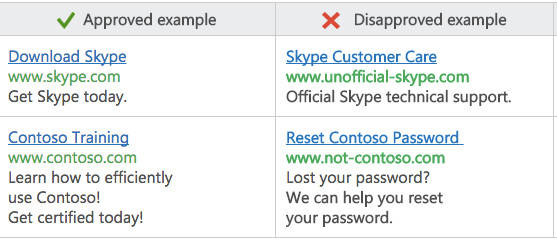This article is more than 1 year old
Microsoft boots fake fix-it search ads
Bada-Bing, bada-boom, you support scam's doomed
Microsoft has laid out new rules for its Bing search engine designed to crack down on tech support scams.
Redmond said that it will no longer allow advertisers to pitch their third-party support and repair products as "official" or branded tech support.
Under the new rules, Bing search ads will have to present themselves expressly as unaffiliated, and the ads cannot use the brand or product's name to present themselves as official or affiliated.
In exact terms, the new policy reads:
Advertisers may not promote online technical support to consumers for products or services that the advertisers do not directly own
The aim, says Microsoft, is to protect users from scam operations that will present themselves as security products or updates that come directly from the PC or OS builder, when in fact they are paid third-party products.

An example of what is and isn't allowed on Bing
Support scams are a very real danger for consumers, particularly older users who may not be proficient and prone to panic when presented with fake alerts or error messages. It is estimated that last year alone, support scams cost consumers more than $1.5bn.
For example, a user may search "Windows support" and previously could have been served an ad for a third party remote access tool or other product that presents itself as an official Microsoft release. The new policy would aim to block such tactics.
"This policy change reflects Microsoft’s commitment to lead the industry in providing a safer experience for all of our end users, including populations most vulnerable to online scams and other fraud activities," said Microsoft product manager.
That is not to say that support companies are blocked outright from Bing. Users who search for generic terms including "PC repair" or "PC support" can still see ads from third-party services.
The move could, however, irk third-party support providers, particularly local shops who are paying Microsoft in hopes of getting out in front of customers to provide legitimate services. ®
